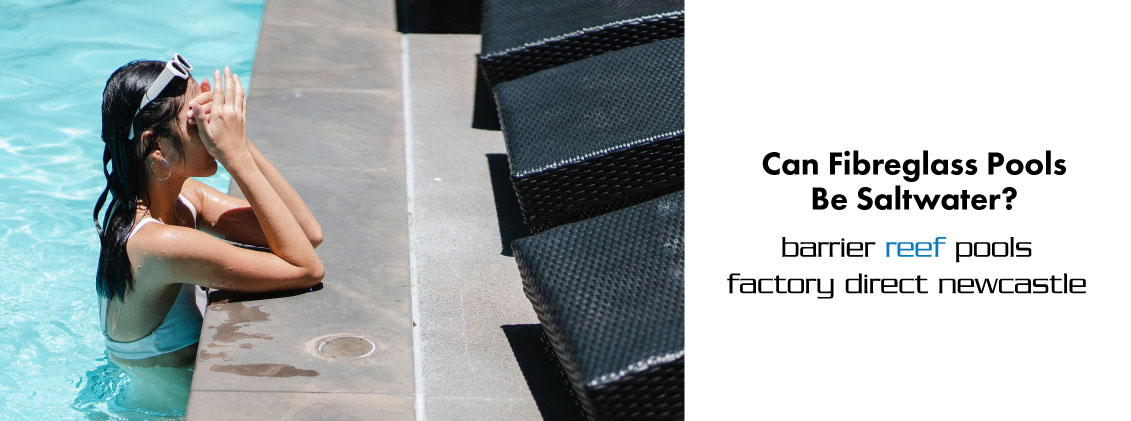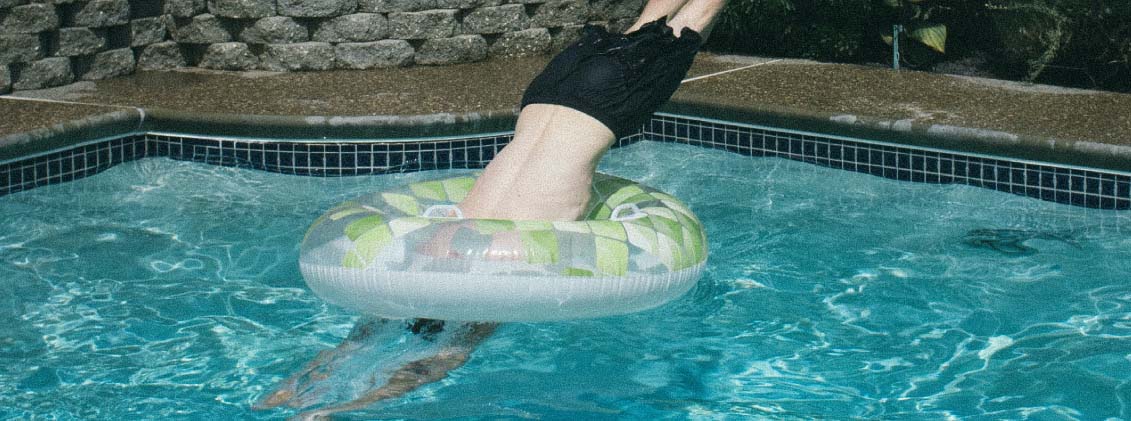Can Fibreglass Pools Be Saltwater?
A lot of decisions have to be made when you decide to install a pool at home. These range from the size and shape of the pool to whether it will be in-ground. Also, of course, the sort of material you wish to use. Do you want to create a concrete pool, a fibreglass pool, or a vinyl pool? The list goes on. While we put so much effort into deciding what kind of pool we want, we assume that the only method to keep the pool water clean is the traditional one - chlorine.

Chlorine, while an effective pool water cleaning method, has its fair share of disadvantages. These include causing irritability in eyes and skin, fading of clothes, and high ongoing costs.
There is another method of keeping the water clean that actually does away with all of the major disadvantages of chlorine, and that is saltwater.
Saltwater swimming pools are slowly and surely gaining popularity. Saltwater not only feels softer on the skin, it is also a lot less harsh than chlorinated water. The big misconception about saltwater pools is that the water is as salty as the ocean! Fact is, a saltwater pool contains ten times less salt than the ocean.
Some major advantages of saltwater pools are:
1) Lower ongoing costs
2) Softer water
3) Better for skin and hair
4) Less harsh on clothes
5) Less maintenance
Can my pool be saltwater?
Now that we have seen the many advantages of saltwater pools, the next question is this: Can your pool be saltwater? Could you make the switch from chlorine to salt? The simple water is yes, you definitely can. While there is a chance of corrosion speeding up a little if you have a concrete pool, you can safely use saltwater by making a few tiny adjustments. When it comes to fibreglass pools, the news is even better. Fibreglass pools are super compatible with saltwater. The other type of pool is vinyl ones, which do not react well with saltwater. It is recommended to stick with chlorine as your pool’s cleaning agent if you have a vinyl pool.

Fibreglass pools and saltwater systems
Let’s get into the compatibility between saltwater systems and fibreglass pools in a little more detail. Over the recent years, fibreglass pools have become a lot more popular than the traditional concrete and vinyl pools. This is because they have a number of pros in their favour, such as resisting the growth of algae on its walls, the need for less maintenance and longer overall life.
Fibreglass is made of limestone, soda ash and silica sand. A fibreglass pool has glass fibre, polyester and gel coats. Among other things, these basic materials ensure hygiene in a fibreglass pool.
Technology has also grown by leaps and bounds. The fibreglass sheets used in pools can withstand most of the severe elements they may be exposed to. (See just how long fibreglass pools last here) Here are some of the major points showing how highly compatible fibreglass pools can be with saltwater:
1) The shell of a fibreglass pool remains unaffected by the saltwater.
2) The overall life of a fibreglass pool, which is significantly longer, is not reduced in any way if you choose for your pool to be saltwater.
3) A saltwater system will ensure your fibreglass pool remains beautifully clean without you spending a large sum of money.
4) As salt is basically corrosive in nature, it may eat away at other pool types like concrete and even vinyl. But since fibreglass is both strong and non-porous, it is the one material salt doesn’t affect negatively.
As you can see, their efficiency ensures that saltwater systems are here to stay. Here are some additional points to consider while setting up your pool:
1) Saltwater systems also decrease the need to add unnecessary chemicals to your pool.
2) Many owners of saltwater pools swear by how velvety the water feels.
3) Saltwater pools do not sting your eyes and your skin as much as chlorinated water does. So, in the eventuality that you do end up opening your eyes underwater, it will not hurt.
4) A saltwater pool will not have that chemical-y smell that we tend to associate with chlorine pools.

Check out our post here on mineral or salt water fibreglass pools!
Just because we think of the ocean as soon as we think about saltwater, we tend to hold onto a number of stereotypes surrounding it. Here are not only some common myths about saltwater pools but also some facts to counter them:
1) Water will be as salty as the ocean
Water in your saltwater pool is almost ten times less salty than that at the beach. Water in your pool will be as much as 10 times less salty than the water in the ocean. Seawater contains salt at the average rate of 35,000 ppm. This means approximately 3.5 per cent of seawater is salt. When compared to the water in your saltwater pool, this is much higher. In the pool, the salt concentration ranges from 1500 ppm to 4500 ppm. Please note that ppm is parts per million.
2) Unsafe if you end up gulping it
There is absolutely no reason to think saltwater is unsafe if you accidentally gulp a bit of it. Of course, it is never recommended that you gulp large amounts of it at any time. If you feel any uneasiness after your swim in a saltwater pool or any pool for that matter, make sure you contact your healthcare professional immediately.
3) Saltwater means not clean enough
A lot of people think that there is no chlorine in a saltwater pool. To top that, they feel that this means the pool isn’t clean enough. This is not the case. A saltwater pool cleans the water through the natural production of chlorine. There is just no additional chlorine that you are adding to the water. This only means fewer chemicals and not less cleanliness, which is, in fact, a win-win situation.
Now that you know about the many benefits of a saltwater pool, are you ready to make the switch?

